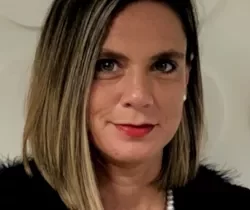Kimberly Hardcastle-Geddes

Kimberly Hardcastle-Geddes is chief marketing strategist at mdg, a full-service agency specializing in growing attendance for live and virtual events.

Many trade show and conference producers have found themselves in unchartered territory as they’ve made the in-person to online event pivot over the past several months. These professionals have been reading about best practices, researching new vendors, consulting with industry peers and otherwise learning as they go. Meanwhile, there’s another group of industry professionals—a subset of Freeman called Freeman Digital Ventures—that has been producing digital events since 2015. I asked three of the strategists that align with this group, Mark Fein, Stacy O’Connell and Tyler Day, to share what they’ve learned from strategizing, planning and marketing digital events that could inform and/or inspire the rest of us. Here were my top takeaways.
One of our clients was producing a digital version of an exclusive, in-person event for VIPs. The shelter-in-place orders were new, and they wanted to wow the audience with this digital launch. In addition to the quality of the content, we put extra emphasis on production values — ensuring speakers had proper mics, lighting and camera settings. The speakers commented about how much the attention to detail, as well as the value of the rehearsals, enhanced their showing. Over the past several months, the level of production that’s expected by audiences has continued to rise. We’re trying to shift our thinking from, “how can we create a good online webinar?” to “how can we replicate the quality of the experience MasterClass or even Netflix provides?” A flawless, professional production can go a long way toward engaging our audiences.
The Freeman Attendee Pulse survey lists learning as the top driver for participants attending online events as well as a preference for shorter event days and session times. With this in mind, we asked one of our clients, “Do you really need all this content?” We worked with them to develop an agenda with shorter days that better aligned with digital audiences’ desires and adult attention spans in general. We remind our clients regularly that it’s not just about a transfer of information; it’s about creating experiences that entertain and inspire.
Building on the reality of shorter attention spans, we are working with one client to incorporate well-timed breaks that include elements of surprise and delight. Instead of jumping right into a cocktail reception, for instance, we’re starting with a 10-minute tutorial from an expert mixologist. The next morning, we will be complementing the coffee break with an option for a 15-minute yoga session. Another one of our clients invited a musician to entertain the audience during the virtual happy hour. A word of caution with this: Be careful not to overwhelm the audience, overfill the agenda and extend the event longer than it needs to be.
For many of our clients, creating meaningful connections is of equal or greater importance than the learning aspect of an online event. With that in mind, we’ve been creating a variety of opportunities to accommodate for the different ways in which people like to connect. In addition to basics like chat functions in an education session, we’re building in themed photo booths, social media integrations, expert-led discussion groups, direct one-on-one video chats, sponsored coffee breaks and more.
One of our corporate clients was exhibiting at an event that was shifting from physical to digital. The sponsorship package the event organizer offered had a few bells, but no whistles. Mapping back to our client’s objectives, we developed a digital game activation in which attendees completed various activities aligned with the client’s objectives — they could watch videos, download collateral/content, chat with a rep and more. They were even able to see a real-time leaderboard tied to valuable giveaways. This activation went far beyond what the producer was offering, provided a deeper brand experience to booth visitors and far exceeded our client’s lead-gen goals.
Although we’ve been at this a long time, we still believe in testing, testing and more testing. We’ve been experimenting with different marketing messages and tactics, session lengths, formats, etc. We’re using analytics to see where we’re getting high levels of engagement and then applying those on the fly and using them to package top trending topics for on-demand packages. “Agility” truly is the name of the game when it comes to digital events.

Add new comment